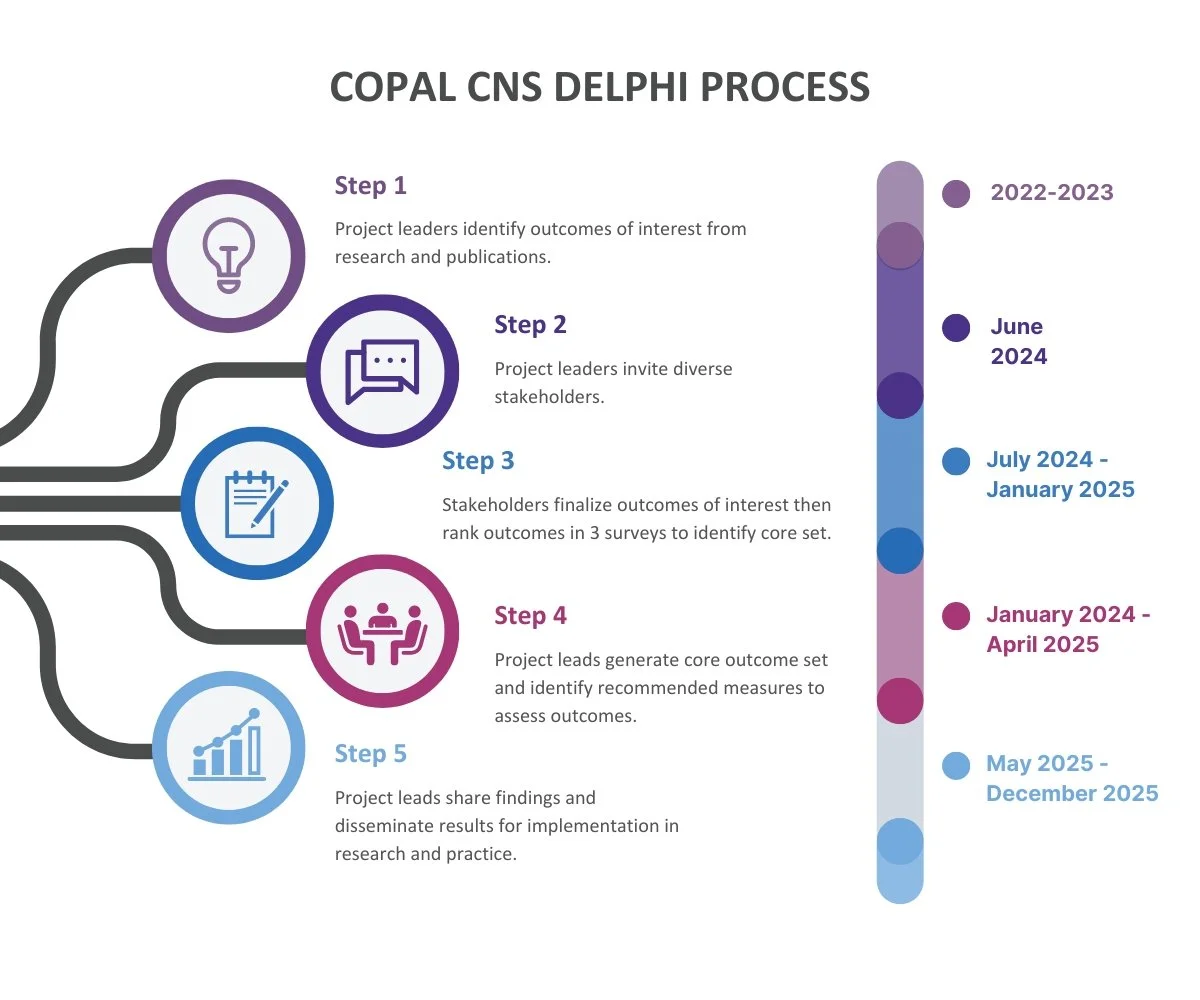
The Delphi Process
We will be using the Delphi process for this project.
The Delphi process is a structured communication technique used to gather and distill the knowledge and insights of a group of experts on a particular topic. It is often used in research, policy-making, forecasting, and decision-making to reach a consensus or make informed judgments on complex issues.
In the Delphi process, a series of questionnaires or surveys are administered to a panel of experts, typically anonymously. After each round of feedback, the responses are aggregated and summarized, and the results are fed back to the participants in subsequent rounds. The experts are then asked to reconsider their opinions in light of the group feedback, with the goal of converging towards a consensus (or near consensus) over multiple rounds.
The Delphi process allows experts to share their knowledge and opinions without being influenced by group dynamics or dominant personalities, as all responses are anonymous. It helps to identify areas of agreement and disagreement, prioritize issues, and ultimately reach a group consensus on complex or uncertain topics.
Things to consider when completing the COPAL CNS Delphi surveys.
COPAL Delphi surveys were distributed to approximately 90 palliative care experts worldwide. The COPAL CNS stakeholder group includes clinicians, researchers, neurosurgeons, neuro-oncologists, medical oncologists, individuals with primary central nervous system (CNS) cancers, their care partners, and advocacy organizations. These experts bring a range of perspectives and expertise.
For stakeholders asked to take the survey, please consider the following guidelines:
Evaluate Outcome Importance: Rate the importance of each outcome based on your perception of its impact on quality of life and relieving suffering for adults (18+) living with primary CNS (brain, brain + spinal cord, or spinal cord) cancer.
Survey Focus: These questions address various palliative care domains: physical aspects; psychological and psychiatric aspects; social aspects; spiritual, religious and existential aspects; cultural aspects; and ethical and legal aspects, as outlined in the U.S. National Coalition for Hospice & Palliative Care Clinical Practice Guidelines Domains of Care and based on literature review.
Holistic View: Consider the overall illness experience prior to the end-of-life or hospice phase, rather than a specific time point because palliative care is relevant across all stages of the disease.
Perspective: Base your responses on the perspective of the adult individual with CNS cancer or the brain and spinal cord cancer community. Please answer from the viewpoint of the patient experience rather than that of the care partner.
Importance of Interventions: Consider whether a palliative care intervention addressing a specific need would have been beneficial at any point during the patient’s journey. Rank its importance on a scale from 3 (important) to 5 (critically important). Timing in the journey is not being stratified for at this point - consider the bigger picture rather than a specific timepoint.
Intervention Focus: Concentrate on how palliative care interventions can address specific needs and improve outcomes for individuals with primary CNS cancers.
Rating Outcomes
As part of the Delphi process, COPAL CNS stakeholders will complete three surveys to rank outcomes and develop a core outcome set.
Rating Scale: Please use the following scale to rate each outcome:
1: Not Important
2: Slightly Important
3: Important
4: Very Important
5: Critically Important
Progression: Outcomes rated 4 and 5 will advance to the second and third surveys. Items rated 3 will be discussed further.
If, for instance, you believe that fatigue is important for individuals with brain cancer and critically important for those with spinal cord tumors, you should rate fatigue as a 5 for those with spinal cord tumors.
At the end of the survey, you'll have the chance to provide feedback and suggest any outcomes that may have been overlooked and should be included in the consensus process.
After completing each survey, the project leads will review the results, address any areas where the findings are unclear or inconclusive, and then move forward with the subsequent surveys.
